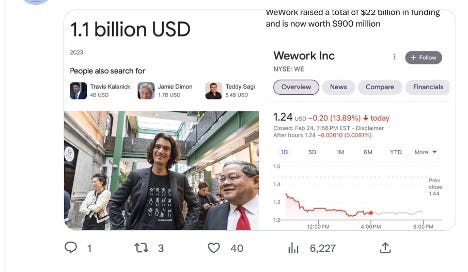WeWork's Titanic Tumble: More Distressed Than a Hipster's Jeans
Oh, WeWork, how the mighty have fallen
Remember when We Work Was the shining star of the startup world, the glittering emblem of the new era of work?
For four years, this real estate play-pretend tried to rebrand from a rowdy, beer-guzzling co-working space into a serious, money-making business. I
It even swapped out its charismatic but slightly crazed co…



